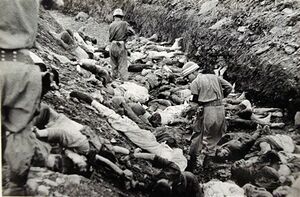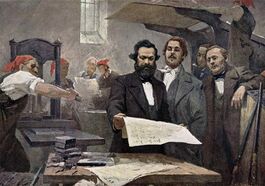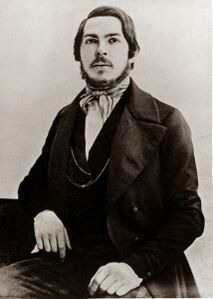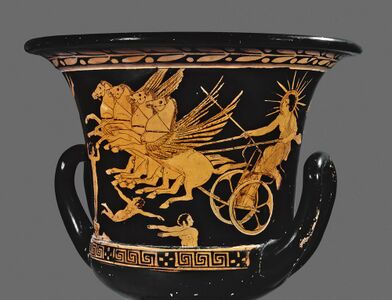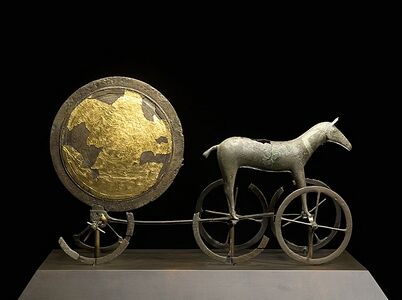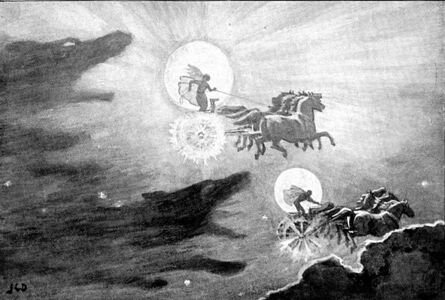User:Harrystein/sandbox
| Welcome to this sandbox page, a space to experiment with the process of editing Leftypedia.
To edit this sandbox, you can either edit the source code ("Edit source" tab above) or use VisualEditor ("Edit" tab above). Then make your changes, and click the "Publish changes" button when finished. You can click "Show preview" to see a preview of what you are about to save, or "Show changes" to see what you have changed. or If you are logged in, you can access your personal sandbox ("Sandbox" link at the very top of the page, next to your username). Please DO NOT place promotional, copyrighted, offensive, or libelous content in sandboxes. For more information on sandboxes, see Help:My sandbox. For information and resources on the basics needed to comprehend, comment on, and edit Leftypedia, see Editing Leftypedia or Guidelines. |
Links to subpages:
In this userspace:
| Harrystein/sandbox |
- Harrystein/sandbox/AWB/CSVLoader
- Harrystein/sandbox/AWB/CSVLoader/four
- Harrystein/sandbox/AWB/CSVLoader/one
- Harrystein/sandbox/Main Page
- Harrystein/sandbox/Main Page/Featured
- Harrystein/sandbox/Main Page/Featured/content
- Harrystein/sandbox/Main Page/Featured/image
- Harrystein/sandbox/Main Page old
- Harrystein/sandbox/Research & Sources
- Harrystein/sandbox/draft
- Harrystein/sandbox/draft/Primitive communism
- Harrystein/sandbox/spamtest
- Harrystein/sandbox/template
- Harrystein/sandbox/template/Linked icons
- Harrystein/sandbox/template/Linked icons/Xicon
- Harrystein/sandbox/template/Linked icons from scratch
- Harrystein/sandbox/template/Linked icons from scratch/link
- Harrystein/sandbox/template/alt-lang
- Harrystein/sandbox/template/essay
- Harrystein/sandbox/template/infobox country
- Harrystein/sandbox/template/infobox person
- Harrystein/sandbox/template/other
- Harrystein/sandbox/text/Draft principles
Sidebar templates
Imperialism
| Theories of |
| Imperialism |
|---|
| Theories of |
| Imperialism |
|---|
| Authors |
| V. I. Lenin · Rosa Luxemburg · Samir Amin · John Smith · Michael Hudson |
| Concepts |
| Super‑imperialism · Unequal exchange · Three worlds theory · |
| Issues |
| test |
| Imperialism |
|---|
| Theory |
| Practice |
Link either to Theories of imperialism (new page) or Imperialism#Theories of imperialism. This could also be combined into a broader "Imperialism" sidebar, which had one section for "Theories/debates" and others for political and other shit. But in my opinion if people disagree on definitions they will probably disagree on what constitutes an imperialist political act. Not everyone can just say "I know it when I see it" - that's imprecise, to me.
See also at Wikipedia: Wikipedia:Template:Imperialism Studies sidebar.
Anti-communism
| Anti-communism |
|---|
Capital outline
| Capital Volume I |
|---|
| Part I: Commodities and Money |
| 1. Commodities |
| 2.Exchange |
| 3. Money, or the Circulation of Commodities |
| Part II: The Transformation of Money into Capital |
| 4. The General Formula for Capital |
| Part V: The Production of Absolute and of Relative Surplus-Value |
| 5. Contradictions in the General Formula of Capital |
| 6. The Buying and Selling of Labour-Power |
| Part III: The Production of Absolute Surplus-Value |
| 7. The Labour-Process and the Process of Producing Surplus-Value |
| 8. Constant Capital and Variable Capital |
| 9. The Rate of Surplus-Value |
| 10. The Working-Day |
| 11. Rate and Mass of Surplus-Value |
| Part IV: Production of Relative Surplus Value |
| 12. The Concept of Relative Surplus-Value |
| 13. Co-operation |
| 14. Division of Labour and Manufacture |
| 15. Machinery and Modern Industry |
| 16. Absolute and Relative Surplus-Value |
| 17. Changes of Magnitude in the Price of Labour-Power and in Surplus-Value |
| 18. Various Formula for the Rate of Surplus-Value |
| Part VI: Wages |
| 19. The Transformation of the Value (and Respective Price) of Labour-Power into Wages |
| 20. Time-Wages |
| 21. Piece-Wages |
| 22. National Differences of Wages |
| Part VII: The Accumulation of Capital |
| 23. Simple Reproduction |
| 24. Conversion of Surplus-Value into Capital |
| 25. The General Law of Capitalist Accumulation |
| Part VIII: Primitive Accumulation |
| 26. The Secret of Primitive Accumulation |
| 27. Expropriation of the Agricultural Population from the Land |
| 28. Bloody Legislation against the Expropriated, from the End of the 15th Century. Forcing down of Wages by Acts of Parliament |
| 29. Genesis of the Capitalist Farmer |
| 30. Reaction of the Agricultural Revolution on Industry. Creation of the Home-Market for Industrial Capital |
| 31. Genesis of the Industrial Capitalist |
| 32. Historical Tendency of Capitalist Accumulation |
| 33. The Modern Theory of Colonisation |
Comparisons
| Political Economy |
|---|
| Authors |
| Concepts |
| Major works |
Quote box template
No war is any longer possible for Prussia-Germany except a world war and a world war indeed of an extent and violence hitherto undreamt of. Eight to ten millions of soldiers will massacre one another and in doing so devour the whole of Europe until they have stripped it barer than any swarm of locusts has ever done. The devastations of the Thirty Years’ War compressed into three or four years, and spread over the whole Continent; famine, pestilence, general demoralisation both of the armies and of the mass of the people produced by acute distress; hopeless confusion of our artificial machinery in trade, industry and credit, ending in general bankruptcy; collapse of the old states and their traditional state wisdom to such an extent that crowns will roll by dozens on the pavement and there will be no body to pick them up; absolute impossibility of foreseeing how it will all end and who will come out of the struggle as victor; only one result is absolutely certain: general exhaustion and the establishment of the conditions for the ultimate victory of the working class.
"Israel and South Africa have one thing above all else in common: they are both situated in a predominantly hostile world inhabited by dark peoples."
– Official yearbook of the South African government, 1978[1]
Lorem ipsum. No war is any longer possible for Prussia-Germany except a world war and a world war indeed of an extent and violence hitherto undreamt of. Eight to ten millions of soldiers will massacre one another and in doing so devour the whole of Europe until they have stripped it barer than any swarm of locusts has ever done. The devastations of the Thirty Years’ War compressed into three or four years, and spread over the whole Continent; pestilence and general demoralisation both of the armies and of the mass of the people produced by acute distress; hopeless confusion of our artificial machinery in trade, industry and credit, ending in general bankruptcy; collapse of the old states and their traditional state wisdom to such an extent that crowns will roll by dozens on the pavement and there will be no body to pick them up; absolute impossibility of foreseeing how it will all end and who will come out of the struggle as victor; only one result is absolutely certain: general exhaustion and the establishment of the conditions for the ultimate victory of the working class.
Eight to ten millions of soldiers will massacre one another and in doing so devour the whole of Europe until they have stripped it barer than any swarm of locusts has ever done. The devastations of the Thirty Years’ War compressed into three or four years, and spread over the whole Continent; famine, pestilence, general demoralisation both of the armies and of the mass of the people produced by acute distress; hopeless confusion of our artificial machinery in trade, industry and credit, ending in general bankruptcy; collapse of the old states and their traditional state wisdom to such an extent that crowns will roll by dozens on the pavement and there will be no body to pick them up; absolute impossibility of foreseeing how it will all end and who will come out of the struggle as victor; only one result is absolutely certain: general exhaustion and the establishment of the conditions for the ultimate victory of the working class.
Invalid date parameter.
date parameter should be reformatted to look like:
1 Jan 1970 or Jan 1, 1970
or removed.
Samir Geagea @DrSamirGeagea The most important thing is not to involve the Lebanese in anything that they cannot deal with, in light of the difficult situation they are experiencing.
Eight to ten millions of soldiers will massacre one another and in doing so devour the whole of Europe until they have stripped it barer than any swarm of locusts has ever done. The devastations of the Thirty Years’ War compressed into three or four years, and spread over the whole Continent; famine, pestilence, general demoralisation both of the armies and of the mass of the people produced by acute distress; hopeless confusion of our artificial machinery in trade, industry and credit, ending in general bankruptcy; collapse of the old states and their traditional state wisdom to such an extent that crowns will roll by dozens on the pavement and there will be no body to pick them up; absolute impossibility of foreseeing how it will all end and who will come out of the struggle as victor; only one result is absolutely certain: general exhaustion and the establishment of the conditions for the ultimate victory of the working class.
Eight to ten millions of soldiers will massacre one another and in doing so devour the whole of Europe until they have stripped it barer than any swarm of locusts has ever done. The devastations of the Thirty Years’ War compressed into three or four years, and spread over the whole Continent; famine, pestilence, general demoralisation both of the armies and of the mass of the people produced by acute distress; hopeless confusion of our artificial machinery in trade, industry and credit, ending in general bankruptcy; collapse of the old states and their traditional state wisdom to such an extent that crowns will roll by dozens on the pavement and there will be no body to pick them up; absolute impossibility of foreseeing how it will all end and who will come out of the struggle as victor; only one result is absolutely certain: general exhaustion and the establishment of the conditions for the ultimate victory of the working class.
Template image design testing
| Marxism |
|---|
| "The philosophers have only interpreted the world; the point is to change it." |
| Marxist philosophy |
| Dialectical materialism |
| Historical materialism |
| Marxist historiography · Mode of production · Class struggle · |
| Marxist political economy |
| Das Kapital · Marxian economics · Law of value · Exploitation · Rate of profit |
| Marxist communism |
| Dictatorship of the proletariat · |
| Schools of thought |
| Orthodox Marxism · Trotskyism · Marxism-Leninism · Maoism · Analytical Marxism |
No war is any longer possible for Prussia-Germany except a world war and a world war indeed of an extent and violence hitherto undreamt of. Eight to ten millions of soldiers will massacre one another and in doing so devour the whole of Europe until they have stripped it barer than any swarm of locusts has ever done. The devastations of the Thirty Years’ War compressed into three or four years, and spread over the whole Continent; famine, pestilence, general demoralisation both of the armies and of the mass of the people produced by acute distress; hopeless confusion of our artificial machinery in trade, industry and credit, ending in general bankruptcy; collapse of the old states and their traditional state wisdom to such an extent that crowns will roll by dozens on the pavement and there will be no body to pick them up; absolute impossibility of foreseeing how it will all end and who will come out of the struggle as victor; only one result is absolutely certain: general exhaustion and the establishment of the conditions for the ultimate victory of the working class.
Lorem ipsum. No war is any longer possible for Prussia-Germany except a world war and a world war indeed of an extent and violence hitherto undreamt of. Eight to ten millions of soldiers will massacre one another and in doing so devour the whole of Europe until they have stripped it barer than any swarm of locusts has ever done. The devastations of the Thirty Years’ War compressed into three or four years, and spread over the whole Continent; pestilence and general demoralisation both of the armies and of the mass of the people produced by acute distress; hopeless confusion of our artificial machinery in trade, industry and credit, ending in general bankruptcy; collapse of the old states and their traditional state wisdom to such an extent that crowns will roll by dozens on the pavement and there will be no body to pick them up; absolute impossibility of foreseeing how it will all end and who will come out of the struggle as victor; only one result is absolutely certain: general exhaustion and the establishment of the conditions for the ultimate victory of the working class.
Eight to ten millions of soldiers will massacre one another and in doing so devour the whole of Europe until they have stripped it barer than any swarm of locusts has ever done. The devastations of the Thirty Years’ War compressed into three or four years, and spread over the whole Continent; famine, pestilence, general demoralisation both of the armies and of the mass of the people produced by acute distress; hopeless confusion of our artificial machinery in trade, industry and credit, ending in general bankruptcy; collapse of the old states and their traditional state wisdom to such an extent that crowns will roll by dozens on the pavement and there will be no body to pick them up; absolute impossibility of foreseeing how it will all end and who will come out of the struggle as victor; only one result is absolutely certain: general exhaustion and the establishment of the conditions for the ultimate victory of the working class.
No war is any longer possible for Prussia-Germany except a world war and a world war indeed of an extent and violence hitherto undreamt of. Eight to ten millions of soldiers will massacre one another and in doing so devour the whole of Europe until they have stripped it barer than any swarm of locusts has ever done. The devastations of the Thirty Years’ War compressed into three or four years, and spread over the whole Continent; famine, pestilence, general demoralisation both of the armies and of the mass of the people produced by acute distress; hopeless confusion of our artificial machinery in trade, industry and credit, ending in general bankruptcy; collapse of the old states and their traditional state wisdom to such an extent that crowns will roll by dozens on the pavement and there will be no body to pick them up; absolute impossibility of foreseeing how it will all end and who will come out of the struggle as victor; only one result is absolutely certain: general exhaustion and the establishment of the conditions for the ultimate victory of the working class.
Lorem ipsum. No war is any longer possible for Prussia-Germany except a world war and a world war indeed of an extent and violence hitherto undreamt of. Eight to ten millions of soldiers will massacre one another and in doing so devour the whole of Europe until they have stripped it barer than any swarm of locusts has ever done. The devastations of the Thirty Years’ War compressed into three or four years, and spread over the whole Continent; pestilence and general demoralisation both of the armies and of the mass of the people produced by acute distress; hopeless confusion of our artificial machinery in trade, industry and credit, ending in general bankruptcy; collapse of the old states and their traditional state wisdom to such an extent that crowns will roll by dozens on the pavement and there will be no body to pick them up; absolute impossibility of foreseeing how it will all end and who will come out of the struggle as victor; only one result is absolutely certain: general exhaustion and the establishment of the conditions for the ultimate victory of the working class.
Eight to ten millions of soldiers will massacre one another and in doing so devour the whole of Europe until they have stripped it barer than any swarm of locusts has ever done. The devastations of the Thirty Years’ War compressed into three or four years, and spread over the whole Continent; famine, pestilence, general demoralisation both of the armies and of the mass of the people produced by acute distress; hopeless confusion of our artificial machinery in trade, industry and credit, ending in general bankruptcy; collapse of the old states and their traditional state wisdom to such an extent that crowns will roll by dozens on the pavement and there will be no body to pick them up; absolute impossibility of foreseeing how it will all end and who will come out of the struggle as victor; only one result is absolutely certain: general exhaustion and the establishment of the conditions for the ultimate victory of the working class.
No war is any longer possible for Prussia-Germany except a world war and a world war indeed of an extent and violence hitherto undreamt of. Eight to ten millions of soldiers will massacre one another and in doing so devour the whole of Europe until they have stripped it barer than any swarm of locusts has ever done. The devastations of the Thirty Years’ War compressed into three or four years, and spread over the whole Continent; famine, pestilence, general demoralisation both of the armies and of the mass of the people produced by acute distress; hopeless confusion of our artificial machinery in trade, industry and credit, ending in general bankruptcy; collapse of the old states and their traditional state wisdom to such an extent that crowns will roll by dozens on the pavement and there will be no body to pick them up; absolute impossibility of foreseeing how it will all end and who will come out of the struggle as victor; only one result is absolutely certain: general exhaustion and the establishment of the conditions for the ultimate victory of the working class.
Lorem ipsum. No war is any longer possible for Prussia-Germany except a world war and a world war indeed of an extent and violence hitherto undreamt of. Eight to ten millions of soldiers will massacre one another and in doing so devour the whole of Europe until they have stripped it barer than any swarm of locusts has ever done. The devastations of the Thirty Years’ War compressed into three or four years, and spread over the whole Continent; pestilence and general demoralisation both of the armies and of the mass of the people produced by acute distress; hopeless confusion of our artificial machinery in trade, industry and credit, ending in general bankruptcy; collapse of the old states and their traditional state wisdom to such an extent that crowns will roll by dozens on the pavement and there will be no body to pick them up; absolute impossibility of foreseeing how it will all end and who will come out of the struggle as victor; only one result is absolutely certain: general exhaustion and the establishment of the conditions for the ultimate victory of the working class.
Eight to ten millions of soldiers will massacre one another and in doing so devour the whole of Europe until they have stripped it barer than any swarm of locusts has ever done. The devastations of the Thirty Years’ War compressed into three or four years, and spread over the whole Continent; famine, pestilence, general demoralisation both of the armies and of the mass of the people produced by acute distress; hopeless confusion of our artificial machinery in trade, industry and credit, ending in general bankruptcy; collapse of the old states and their traditional state wisdom to such an extent that crowns will roll by dozens on the pavement and there will be no body to pick them up; absolute impossibility of foreseeing how it will all end and who will come out of the struggle as victor; only one result is absolutely certain: general exhaustion and the establishment of the conditions for the ultimate victory of the working class.
Gallery/images
The Proto-Indo-European culture is a hypothetical prehistoric society which is thought to have spoken the Proto-Indo-European language (PIE), the theoretical common ancestor of hundreds of languages native to Eurasia known collectively as the Indo-European (IE) language family.
In the 18th century, European scholars studying the Hindu classics noted a striking affinity in vocabulary and grammar between Sanskrit, Latin, and Ancient Greek, suggesting a common origin. By the 1830s, research into these languages had discovered reliable sound correspondences which allowed for the inclusion of more dissimilar families like the Celtic, Germanic, and Persian languages. Scholars would later add the Albanian, Armenian, and Balto-Slavic branches as well as several extinct languages. At present, the Indo-European hypothesis is one of the best-supported linguistic theories in the field and is considered to constitute the foundation of historical and comparative linguistics.
In addition to linguistic similarities, cultural and linguistic data in several Indo-European languages show correspondences in religion, mythology, hierarchy, technology, and material culture, allowing for the tentative reconstruction of the cultural complex which may have accompanied such a language. The close relationship between language and culture, however, tends to transcend genetic lineage as different groups assimilate with their neighbors or rulers, and a postulated common origin should not be confused with a racial or genealogical affinity. The harmonization of the relevant linguistic, archaeological, and genetic evidence is a continuing problem in Indo-European studies.
Since its discovery in the late 18th century, the Indo-European language hypothesis has inspired conclusions about its significance. The anthropologist Marija Gimbutas claimed that the spread of the Indo-Europeans represented a conflict between a warlike, masculine culture and non-IE matriarchical, peaceable societies. Colin Renfrew, a British archaeologist, connected the expansion of the Indo-European languages with the spread of the Neolithic Revolution from Anatolia and into Europe. Both theories are largely discarded by linguists today. However, the most well-known application of the theory is Aryanism, pioneered by racial theorist Arthur de Gobineau, according to which the Proto-Indo-Europeans constituted a superior race which expanded due to genetic superiority. This theory was most famously adopted by the National Socialist movement and served as the superstructure of the revived German war machine.
caption1 | caption2 |
caption3 | caption4 |
Gallery
Default
Mode = packed
Template:Country data
| Harrystein/sandbox | |||
|---|---|---|---|
| |||
Excerpts from Paul Cockshott, Calculation in-Natura, from Neurath to Kantorovich (2008)
What follows is a transcription of parts of Paul Cockshott's 2008 paper "Calculation in-Natura, from Neurath to Kantorovich". In the past decade, Cockshott (b. 1952) has achieved some popularity among parts of the online left (in part thanks to the efforts of the 8chan imageboard /leftypol/ and its successors), which has been well-deserved – Cockshott has, in my estimation, shown himself to be a serious and innovative Marxist who has dedicated his life to the advancement of the cause of the working class. He went to school to become a Marxist economist before he realized that computer calculation, as it was developing in the Soviet Union at the time, was the future of leftist economics, and so he switched to theoretical computer science. He personally made visits to the Eastern Bloc and wrote a proposal for radical reform during the crisis of the 1980s, published later as Towards a New Socialism (1993). Even after retiring from his job as a professor, Cockshott has continued to make YouTube videos, articles, and lectures outlining his coherent view on what he considers to be the necessary lessons of the collapse of Maoism in China and socialism in Eastern Europe, as well as the decline of the British left. He has serious concerns about the future of the communist movement, mired in liberal and idealist academic influence as we enter a period of renewed and unprecedented crisis that can only be dealt with by the victory of the masses and the immediate application of socialist planning.
Introduction
Following the collapse of hitherto-existing socialism in Eastern Europe and Central Asia, there was a crisis in socialist economic thought. If we contrast the situation of the 1990s with what had existed 40 years earlier, we see that whilst in the 1950s, socialism and economic planning were almost universally accepted, even by enemies of socialism, as being viable ways to organize an economy, by the 1990s the reverse applied. Among orthodox opinion it was now taken for granted that socialism was the "god that failed" and that socialist economic forms, when judged in the balance of history, had been found wanting. And among socialist theorists there was a general retreat from ideas that had previously been taken for granted, a movement towards market socialist ideas, an accommodation with the idea that the market was a neutral economic mechanism.
Whilst accommodation to the market was, to anyone familiar with Marx, completely at odds with his critique of civil society[44], it nonetheless gained considerable credence. Former governing socialist parties, thrown suddenly into opposition in renascent capitalist states, felt that they had to restrict their ambitions to reforms within a market economy.
In retrospect one can see that the mid-1970s represented the high-water mark of the socialist tide. Whilst the Vietnamese were driving the US out of Saigon, and the last colonial empire in Africa, that of Portugal, was falling, the collapse of the Cultural Revolution in China was setting the economic scene for the triumph of capitalism in the '80s and '90s. When, after the death of Mao, Deng threw open the Chinese economy to Western capital investment, the balance of economic forces across the whole world was upset. An immense reserve army of labour, hireable of the lowest of wages, was thrown onto the scales. The bargaining position of business in its struggles with domestic labour movements was, in one country after another, immensely strengthened.
The general intellectual/ideological environment today is thus much less favorable to socialism than it was in the 20th century. This is not merely a consequence of the counter-revolutions that occurred at the end of the 20th century, but stems from a new and more vigorous assertion of the classic tenets of bourgeois political economy. This re-assertion of bourgeois political economy not only transformed economic policy in the West, but also prepared the ideological ground for counter-revolutions in the East.
The theoretical preparation for the turn to the free market that occurred in the 1980s had been laid much earlier by right-wing economic theorists like Hayek and Friedman. Their ideas, seen as extreme during the 1950s and 60s, gained influence through the proselytizing activities of organizations like the Institute for Economic Affairs and the Adam Smith Institute. These groups produced a series of books and reports advocating free market solutions to contemporary economic problems. They won the ear of prominent politicians like Margaret Thatcher, and from the 1980s were put into practice. She was given the liberty to do this by a combination of long-term demographic changes and short-term conjectural events. Within Britain, labour was in short supply, but across Asia it had become super-abundant. Were capital free to move abroad to this plentiful supply of labour, then the terms of the exchange between labour and capital in the UK would be transformed. Labour would no longer hold the stronger bargaining position. The conjunctural factor making this possible was the surplus in foreign trade generated by North Sea oil. Hitherto, the workers who produced manufactured exports had been essential to national economic survival. With the money from the North Sea, the manufacturing sector could be allowed to collapse without the fear of a balance of payments crisis.
The deliberate run-down of manufacturing industry shrank the social basis of social democracy and weakened the voice of labour both economically and politically.
The success of Thatcher in attacking the trades union movement in Britain encouraged middle-class aspiring politicians in the East like Václav Klaus and presaged a situation in which Hayekian economic doctrines would become the orthodoxy. Thatcher's doctrine TINA, There Is No Alternative (to capitalism), was generally accepted.
The theoretical dominance of free-market economic ideas had by the start of the 21st century become so strong that they were as much accepted by social democrats and self-professed communists as they had been by Thatcher. They owe dominance both to class interests and to their internal coherence. The capitalist historical project took as its founding documents the Declaration of the Rights of Man and Adam Smith's Wealth of Nations. Together, these provided a coherent view of the future of Bourgeois or Civil Society as a self-regulating system of free agents operating in the furtherance of their private interests. Two centuries later, when faced with the challenge of communism and social democracy, the more farsighted representatives of the bourgeoisie returned to their roots, restated the original Capitalist Manifesto, and applied it to current conditions. The labour movement by contrast had no such coherent social narrative. Keynes's economics had addressed only technical issues of government monetary and tax policy – it did not aspire to the moral and philosophical coherence of Smith.
The external economic and demographic factors that originally favored the turn to the market are gradually weakening. Within the next 20 years the vast labour reserves of China will have been largely utilized, absorbed into capitalist commodity production. Globally we are returning to the situation that Western Europe had reached a century ago: a maturing world capitalist economy in which labour is still highly exploited but is beginning to become a scarce resource. These were the conditions that built the social cohesion of classical social democracy, the conditions that gave rise to the IWW and then CIO in America, and led to the strength of communist parties in Western Europe countries like France, Italy and Greece post 1945. We see perhaps, in South America, this process in operation today.
These circumstances set 21st century critical political economy a new historical project: to counter and critique the theories of market liberalism as effectively as Marx critiqued the capitalist economists of his day.
The historical project of the world's poor can only succeed if it promulgates its own political economy, its own theory of the future of society. This new political economy must be as morally coherent as that of Smith, must lead to economically coherent policy proposals, which if enacted, open the way to a new post-capitalist civilisation. As those of Smith opened the way to the post feudal civilisation.
Critical political economy can no longer push to one side the details of how the non-market economy of the future is to be organised. In the 19th century this was permissible, not now. We can not pretend that the 20th century never happened, or that it taught us nothing about socialism. In this task 20th century Western critical Marxists like Cliff, Bettelheim or Bordiga will only take us so far. Whilst they could point out weaknesses of hitherto-existing socialism, they did this by comparing it to an ideal standard of what these writers thought that a socialist society should achieve. In retrospect we see that these trends of thought were a product of the special circumstances of the Cold War, a striving for a position of ideological autonomy "neither Moscow nor Washington", rather than a real contribution to political economy. The very psychological detachment that such writers sought, deflecting from their own heads the calumnies directed at the USSR, prevented them from positively engaging with the problems faced by historically existing socialism. It is only if you envisage being faced with such problems oneself, that one would come up with practical answers:
It is not the critic who counts: not the man who points out how the strong man stumbles or where the doer of deeds could have done better. The credit belongs to the man who is actually in the arena, whose face is marred by dust and sweat and blood, who strives valiantly, who errs and comes up short again and again, because there is no effort without error or shortcoming, but who knows the great enthusiasms, the great devotions, who spends himself for a worthy cause; who, at the best, knows, in the end, the triumph of high achievement, and who, at the worst, if he fails, at least he fails while daring greatly, so that his place shall never be with those cold and timid souls who knew neither victory nor defeat.
— Theodore Roosevelt, Citizenship in a Republic
In the 19th century Marx's Capital was a critique of the political economy that underlay British Liberalism. 21st-century critical political economy must perform an analogous critique of neo-liberal economics comparable in rigour and moral depth. In particular it must engage with the ideas of the Austrian school: Böhm-Bawerk, Mises, Hayek, whose ideas now constitute the keystone of conservatism. Soviet Marxism felt strong enough to ignore them then, and the response in the West came in the main from marginalist socialists like Lange and Dickinson. If socialism is to reconstitute itself as the commonsense of the 21st century – as it was the commonsense of the mid 20th – then these are the ideas that must be faced.[a]
In attacking them one should not hesitate to use the advances in other sciences—statistical mechanics, information theory, computability theory. And, to re-establish scientific socialism there must be a definitive break with the speculative philosophical method of much of Western Marxism. From the time of Marx till about the mid-twentieth century, most left intellectuals saw socialism and science as going hand-in-hand, in some sense. Most scientists were not socialists (though some prominent ones were), but Marxists seemed to regard science as friendly to, or consonant with, their project, and even saw it as their duty as materialists to keep current with scientific thought and assess its implications for social questions.
But since some point in the 1960s or thereabouts, many if not most Western Marxist thinkers have maintained a skeptical or hostile attitude towards science, and have drawn by preference on (old) philosophical traditions, including Hegelianism. It is not clear why this has occurred but these may be some of the factors:
- The conception of science as socially embedded. Science in bourgeois society is bourgeois science, rather than offering privileged access to an independent reality. This idea was obviously present in the Proletkult tendency criticised by Lenin, and was later expressed in Lysenkoism. In addition there has been a conflation of science and technology in the minds of many writers. The role of nuclear weapons no doubt played a part in this and spilled over to a general hostility to nuclear power. Socio-biology too, was seen as hostile to progressive social thought, so the alliance between Marxism and Darwinism came to be weakened. Evolutionary psychology could be seen as transparent apologetics (for example [47]), but this blinded left thinkers to progressive Darwinists like Dawkins[15, 14].
- Althusser, the French communist philosopher, was obviously pro-scientific in intent but may have unwittingly influenced many of his followers in a contrary direction. One could easily get the impression from Althusser that while staying too close to Hegel is an error, empiricism is a cardinal sin. Equate empiricism and science, and you're off to the races.
- The appropriation of the "Scientific Socialism" label by the USSR and its official ideologists.
- The brute historical fact that while science was doing very nicely, socialism in the West was not. Thus undermining the idea that Marxism and science somehow marched together.
Whatever exactly is the cause, the effect is that while in the 1930s (say) one might have expected the "typical" young Marxist intellectual to have a scientific training—or at least to have general respect for scientific method—by the turn of the century one would be hard pressed to find a young Marxist intellectual (in the dominant Western countries) whose background was not in sociology, accountancy, continental philosophy, or perhaps some "soft" (quasi-philosophical) form of economics, and who was not profoundly skeptical of (while also ignorant of) current science.[b]
Unlike that Western Marxist tradition, we have to treat political economy and the theory of social revolution like any other science. We must formulate testable hypotheses, which we then assess against empirical data. Where the empirical results differ from what we expected, we must modify and retest our theories.[c]
In addition we must recover and celebrate the advances in political economy that arose from the Russian experience: the method of material balances used in preparing the Five-Year Plans and systematized as Input-Output analysis by Leontief; the method of linear programming pioneered by Kantorovich; the time diaries of Strumilin.
Conclusion
The Soviet mathematical school founded by Kantorovich and the Austrian school exemplified by Mises and Hayek took radically different positions on the feasibility of socialist economic calculation. To a large extent they ignored one another. The Austrian school largely concentrated on criticising Western trained socialist economists like Lange and the Soviet school appears to have ignored Mises completely. Even when the key participants met, the issue was not raised. Menshikov writes:
It is interesting that in the account of his trip to Sweden for receiving the Nobel Prize, Kantorovich mentions an informal reception with the participation of several American economists – Nobel Prize laureates – including Hayek, Leontief, and Samuelson. But, apparently, neither at this reception, nor during other meetings, this issue was never raised. In January 1976, when I worked in USA as the Director of the United Nation Projections and Perspective Studies Branch, I was asked to present L. V. Kantorovich as a new Nobel Prize laureate at the annual meeting of the American Economic Association in Atlantic City. Of course, I put the emphasis on the economic discovery of the laureate. In the discussion, none of the audience, which included T. Koopmans and L. Klein, a future Nobel Prize laureate, mentioned the question of actual Kantorovich’s answer to a part of Hayek’s argumentation.
With the political demise of the USSR, the Austrian school have tended to assume that Mises arguments have been vindicated, but theoretical economic arguments are not finally resolved by politics. Political fashions change. So- cialism, from being politically unpopular in Europe the 1990s, has, since then, been making substantial inroads on another continent. No, one has to bring economic arguments head to head in their own terms. Kantorovich, an absent participant in the Western debate on socialist calculation, is worth paying attention to.
Edited by Harrystein
Unbulleted list
- * First Red Scare
- Palmer Raids
- Operation Paper
- Christian democracy
- Operation Gladio and the Years of Lead
- Suppression of the Hukbalahap
- CIA influence in 1948 general elections
- Radio Free Asia / Radio Free Europe
- Bodo League Massacre
- Indonesian mass killings of 1965–66
- COINTELPRO
- Ferdinand Marcos
- Operation Cyclone
- Solidarity (Poland)
- 1993 Yeltsin coup
- 1996 Russian presidential election
Subst
stuff
The neutrality of this article is disputed. |
| File:Sandbox.svg | This is the sandbox page for User:Harrystein (diff). |
Linked icon
This is where I used to have a bunch of crap I tried to copy from WikiSpooks.
From scratch test
Notes
References
- ↑ Department of Information 1978, p. 59.
- ↑ Samir Geagea [@DrSamirGeagea]. "The most important thing is not to involve the Lebanese in anything that they cannot deal with, in light of the difficult situation they are experiencing" (Tweet) – via Twitter.
